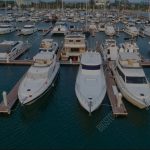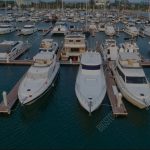 When it comes to ensuring the safety and seaworthiness of a vessel, one of the most crucial steps is conducting a comprehensive inspection of its interior and cabin areas. A thorough examination of these spaces can reveal potential issues that could compromise the integrity of the boat and put the lives of those on board at risk. This is where a qualified Marine Surveyor 33462, such as those from Suncoast Marine Surveying, can play a vital role in providing a detailed assessment of the vessel’s condition.
When it comes to ensuring the safety and seaworthiness of a vessel, one of the most crucial steps is conducting a comprehensive inspection of its interior and cabin areas. A thorough examination of these spaces can reveal potential issues that could compromise the integrity of the boat and put the lives of those on board at risk. This is where a qualified Marine Surveyor 33462, such as those from Suncoast Marine Surveying, can play a vital role in providing a detailed assessment of the vessel’s condition.
Marine Surveyor 33462 are trained professionals who specialize in evaluating various aspects of boats and ships to determine their overall condition and value. They have the knowledge and expertise to identify any structural defects, mechanical problems, or safety hazards that may exist within the interior and cabin areas of a vessel. By conducting a thorough inspection, they can help owners and buyers make informed decisions about the maintenance, repair, or purchase of a boat.
One of the key areas that a Marine Surveyor 33462 will focus on during an inspection is the structural integrity of the vessel’s interior. This includes examining the hull, bulkheads, decks, and superstructure for signs of damage, corrosion, or deterioration. They will also inspect the framing, stringers, and other support structures to ensure they are sound and free from any weaknesses that could compromise the overall strength of the boat.
In addition to assessing the structural integrity of the interior, a Marine Surveyor 33462 will also examine the electrical and mechanical systems within the cabin areas. This includes inspecting the wiring, plumbing, HVAC systems, and other essential components to ensure they are functioning properly and meet industry standards. Any signs of wear and tear, malfunction, or non-compliance with regulations will be noted in the survey report for further evaluation and action.
Another important aspect of a comprehensive inspection conducted by a Marine Surveyor 33462 is evaluating the safety features and equipment within the interior and cabin areas of the vessel. This includes checking for the presence of fire extinguishers, smoke detectors, carbon monoxide alarms, life jackets, emergency exits, and other essential safety devices. They will also assess the condition of these items to ensure they are in good working order and compliant with maritime regulations.
By hiring a qualified Marine Surveyor 33462 from Suncoast Marine Surveying to conduct an inspection of your vessel’s interior and cabin areas, you can rest assured that no stone will be left unturned in identifying potential issues that could affect its safety and seaworthiness. Their attention to detail and expertise in marine inspections will provide you with valuable insights into the condition of your boat and help you address any problems before they escalate into major concerns.
In conclusion, ensuring a comprehensive inspection of your vessel’s interior and cabin areas is essential for maintaining its safety, structural integrity, and overall value. By enlisting the services of a qualified Marine Surveyor 33462 from Suncoast Marine Surveying, you can have peace of mind knowing that your boat is in good hands. Contact them today to schedule an inspection and safeguard your investment on the water.r



 When it comes to owning a boat, ensuring its safety and seaworthiness is of utmost importance. This is where hiring a professional
When it comes to owning a boat, ensuring its safety and seaworthiness is of utmost importance. This is where hiring a professional  When it comes to buying a boat, whether for personal use or commercial purposes, one of the most crucial steps is getting a thorough marine survey done. This includes inspecting not only the exterior of the vessel but also the interior and cabin areas. A proper inspection of these areas can help uncover any potential issues or hidden problems that may affect the safety, functionality, and value of the boat.
When it comes to buying a boat, whether for personal use or commercial purposes, one of the most crucial steps is getting a thorough marine survey done. This includes inspecting not only the exterior of the vessel but also the interior and cabin areas. A proper inspection of these areas can help uncover any potential issues or hidden problems that may affect the safety, functionality, and value of the boat. When it comes to buying or selling a boat, having a thorough inspection conducted by a
When it comes to buying or selling a boat, having a thorough inspection conducted by a 